Like all forms of art, movies have always courted controversy. Whether for artistic reasons, political commentary, or strictly antagonistic purposes – cinema tends to provoke strong emotions, both positive and negative.
Controvery can arise from the sheer extremity of graphic imagery, or it can spark from taboo material. Often though, controversy is heavily based in the geographical and historical context of the film’s release. Beyond simple debates of taste, certain films can spark mass protest, condemnation, or, in rare cases – lawsuits and censorship.
Some of these films may not cause a stir if released today, but back in the 1990s, they were subject to major debates. Take a look back at the biggest debates over movies from the ’90s.
1. ‘JFK’ Explored Assassination Conspiracy Theories And Got Called Out By The US Government
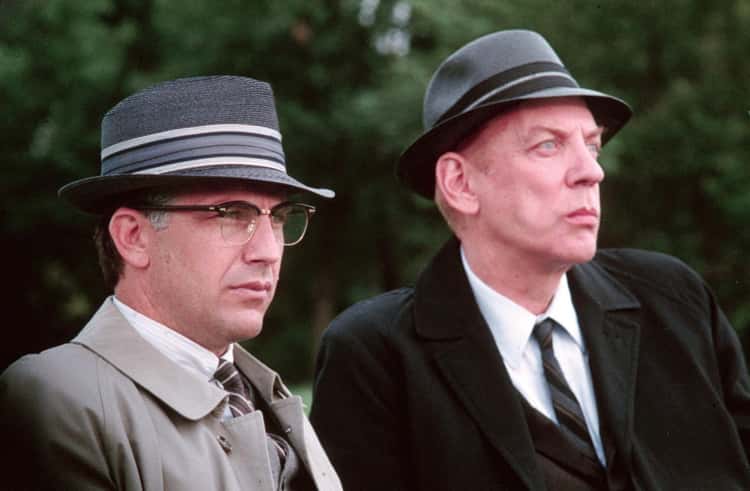
Oliver Stone has courted controversy many times over the course of his career, and 1991’s JFK was one of the most notable cases. The film tells the story of district Attorney Jim Garrison (Kevin Costner), who investigates the possibility that Lee Harvey Oswald (Gary Oldman) did not act alone in his assassination of President John F. Kennedy.
Stone’s film drew criticism for presenting unproven theories in a light that perhaps came across as more factual than they really are. According to the film, Kennedy’s assassination was part of a coordinated plot between the CIA and Cuban exiles to bring down the President. Though the film doesn’t purport to be full historical truth, its depiction of Garrison’s investigation led to a popularization of the unproven theories contained within.
The film was called out in the final report from the official Assassination Record Review Board in 1998, explaining that while Garrison was a real person who did investigate the assassination, the events in the film were “largely fictional.” Additionally, the document addresses that “Stone suggested at the end of JFK that Americans could not trust official public conclusions when those conclusions had been made in secret,” and reminds the public of the JFK Act, legislation that saw the public release of previously-secret documents from the investigations.
2. ‘Natural Born Killers’ Caught The Peak Of The ’90s Panic Around Sensationalized Violence In Media
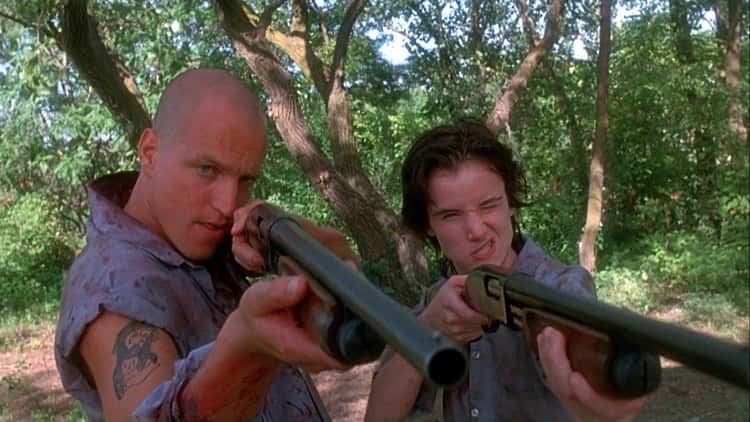
Oliver Stone’s Natural Born Killers is a highly stylized story of two young lovers, Mickey (Woody Harrelson) and Mallory (Juliette Lewis), who rise to ignominious fame following a murder spree. In a classic tale of media attention to the wrong subjects, the film explores the dark consequences as news outlets paint the mass killers as tragic rockstar figures.
The film itself experienced a similar fate, with widespread accusations of its violent story being harmful only drawing more attention to its release. This blitz rode the wave of a larger ’90s panic over violent content in movies, TV, and video games, which alleged films like Natural Born Killers would encourage viewers to commit “copycat crimes” inspired by the lead characters.
In fact, a lawsuit was brought against Stone in connection to an alleged copycat crime by two teens in 1995. Natural Born Killers was also brought up by lawmakers as an alleged inspiration for the perpetrators of the 1999 Columbine High School massacre. Though violence in film and TV is so widespread today that this film would hardly spark debate, back in the ’90s, Natural Born Killers stood out as worthy of alarm.
3. ‘Trainspotting’ Was Accused Of Glamorizing The Drug Lifestyle On The Heels Of The ‘Just Say No’ Era
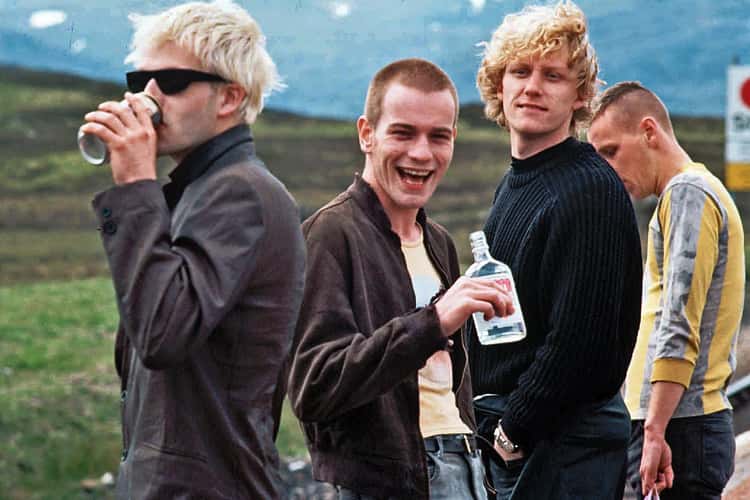
First Lady Nancy Reagan spearheaded the “Just Say No” campaign, adding on to President Ronald Reagan’s “War on Drugs” throughout his administration. The catchphrase was introduced in 1987 and maintained a certain amount of relevancy for many years after, despite being a gross oversimplification of how to tackle issues of addiction.
The “Just Say No” movement set the stage for controversy around Danny Boyle’s 1996 dark comedy Trainspotting, centered on the lives, trials, and tribulations of a group of heroin-addicted punk rock pals in Scotland. The movie was accused of glamorizing and glorifying drug use by public figures like Senator Bob Dole, who later admitted he hadn’t actually seen the film.
If Dole had seen Trainspotting, he would’ve known the second half of the film depicts in harrowing detail the inevitable and fatal consequences of such a lifestyle. Despite the accusations that swirled around its initial release, in the years since, audiences and critics both have come to see Trainspotting for exactly what it is: a kinetic portrait of the highs that pull individuals into drug use in the first place, as well as the lows that come from addiction.
4. ‘The People vs. Larry Flynt’ Was The Controversial Capstone To The Free Speech / Moral Majority Fights Of The ’70s And ’80s
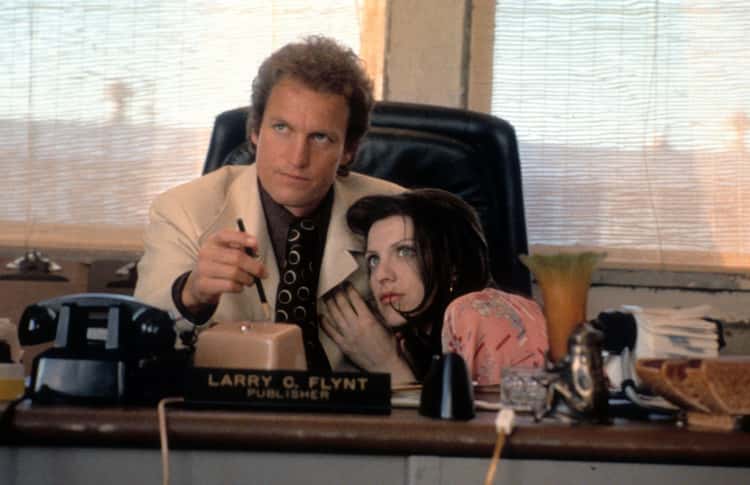
“The Moral Majority” was an organization that rose in prominence in the 1980s, led by televangelist Jerry Falwell. The group centered around advancing conservative Christian ideals in US politics, until it began to crumble by the end of the decade due to widespread criticism. Falwell was notably involved in a 1988 Supreme Court case, Hustler Magazine v. Falwell, in which he tried – and failed – to sue the magazine for libel after it printed a full-page parody ad mocking the minister.
Naturally, The People vs. Larry Flynt raised some controversy when it dramatized those events only a few years later. The 1996 film follows the life of Larry Flynt (Woody Harrelson), from his creation of Hustler magazine to the 1988 Supreme Court case. The film also depicts Flynt as a hero of the free speech movement as it depicts a 1978 shooting where Flynt was attacked outside a courthouse in relation to a different court case over obscenity, resulting in him becoming paralyzed from the waist down.
By today’s standards, publishing adult content may seem incredibly tame, but Flynt was a controversial figure in his time, as was the film’s depiction of him in a mostly-positive light, coming close on the heels of those fraught battles over “free speech.” One critic wrote that the film is not so much a defense of the First Amendment, but “really celebrating Hollywood’s freedom to create biographies of anyone, no matter how high or low on the social ladder, and still come up with the same banal characteristics, messages and conclusions.”
5. ‘Dogma’ Didn’t Go Over Well With Religious Groups
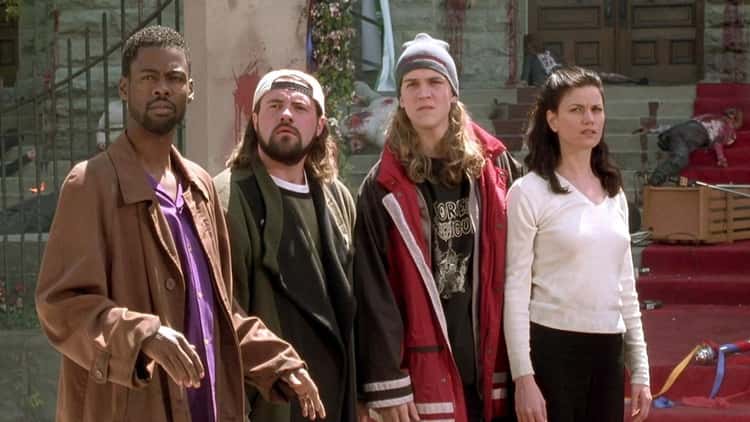
Kevin Smith’s Dogma was released in 1999 to a fair amount of controversy from religious groups, who condemned the film’s comedic story about two fallen angles, Bartleby (Ben Affleck) and Loki (Matt Damon) who plan to abuse a loophole to return to Heaven, threatening to prove God wrong and undo the principles of Creation in the process.
Several Catholic organizations called the film “blasphemous,” and protests greeted showings of Dogma in theaters. Smith received hate mail and death threats over the film, though he wasn’t discouraged. He even seemed to have fun with the controversy, joining a protest against Dogma in New Jersey. When a news correspondent asked him his thoughts on the film, Smith cheekily responded, “I don’t think it stands for anything positive.”
In the years since its release, Dogma has proven to be one of Smith’s most widely beloved works, alongside Clerks.
6. ‘Indecent Proposal’ Sparked Outrage From Those Who Missed The Class Commentary
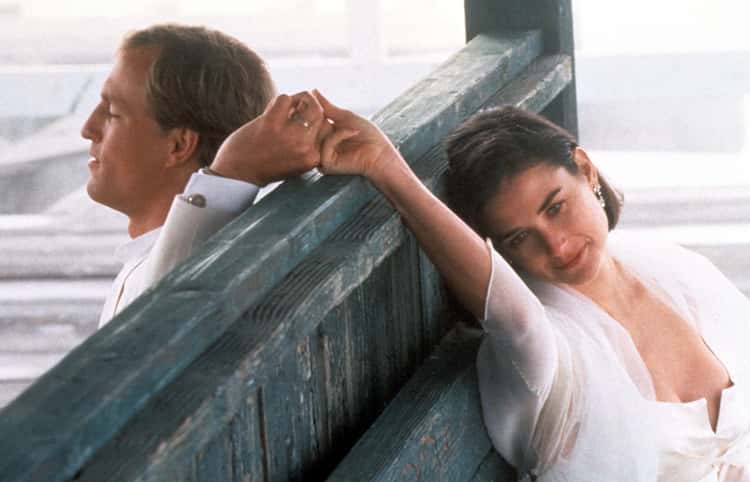
1993’s Indecent Proposal has since been reappraised as a key entry in the decade’s superfluence of erotic thrillers – a genre that has unfortunately fallen to the wayside in recent years. The premise is now infamous: a young couple, David (Woody Harrelson) and Diana (Demi Moore) face financial hardship, only to be approached by billionaire John Gage (Robert Redford), who offers to pay $1 million to have sex with Diana.
The provocative premise drew outrage from many who found the mere idea that a woman would agree to sleep with a man for such a large sum anti-feminist. Numerous women in the filmmaking community, like Callie Khouri (writer of Thelma & Louise), spoke out about the harm they felt Indecent Proposal did to women.
However, screenwriter Amy Holden-Jones felt that much of the controversy was unfair and perhaps sexist itself: “The idea that a woman should not be tempted by any of those things, or she should be so pure that you can’t make a movie about her feeling that way – I mean, go watch some French cinema! It’s more complicated than that. I’m as big a feminist as you’ll find, but part of feminism for me is that women can be portrayed not as visions of perfection on-screen, but as whole human beings with choices.”
7. ‘Kundun’ Came At The Height Of The Free Tibet Movement, Got Martin Scorsese Banned From China, And Got Buried By Disney To Smooth Things Over With The Chinese Government
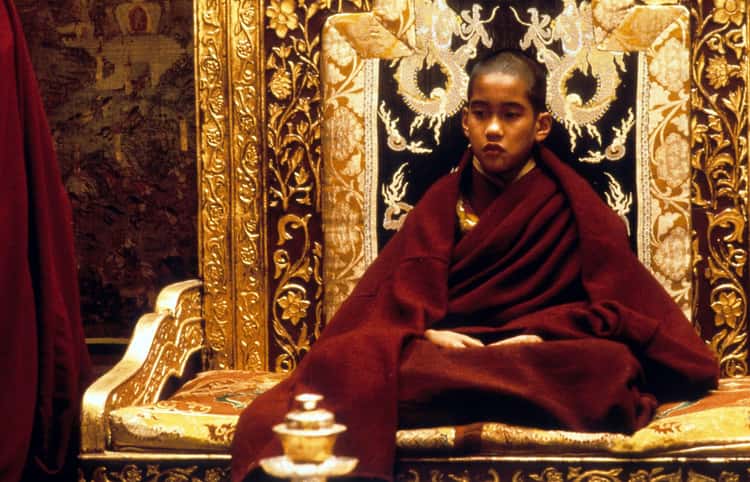
Martin Scorsese has never exactly shied away from difficult material, but controversial isn’t a qualifier the director normally gets saddled with. That changed with Kundun in 1997, written by Melissa Mathison and directed by Scorsese.
The biographical epic recounts the early life of Tenzin Gyatso, the 14th Dalai Lama, and depicts the People’s Republic of China annexation of Tibet in 1950. In the 1990s, the Free Tibet movement was gaining international attention, demanding that China end its occupation. As a result, China banned Kundun, and also banned Scorsese (and other members of the crew) from ever entering the country. Disney, fearing that their other films would also be restricted in China if they released Kundun at all, but also wanting to avoid accusations of caving to censorship, simply encouraged the film to fail.
Kundun was released on only four screens on Christmas day, then promptly buried, with Disney acting as if the decision was purely in response to poor box-office performance. Reportedly, Disney CEO Michael Eisner had to fly to Beijing and apologize to Chinese officials to restore the company’s relationship with the country, saying, “The bad news is that [Kundun] was released. The good news is that nobody saw it.”
8. ‘Eyes Wide Shut’ Was A Scandalous Showcase For The Biggest ’90s Power Couple
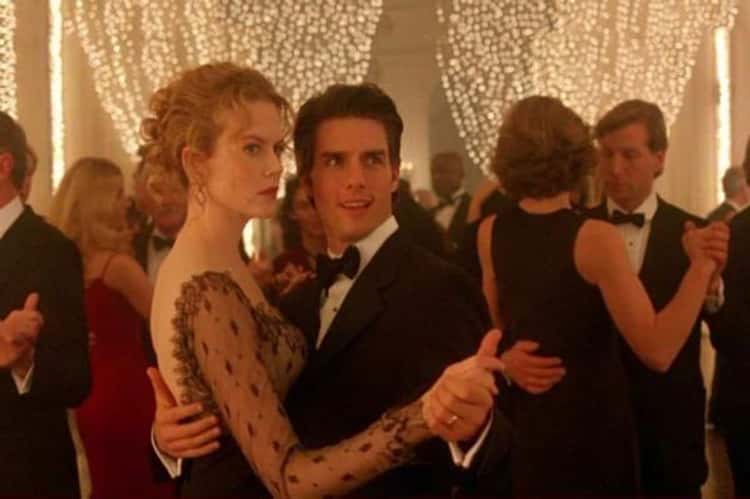
For a time in the 1990s, Tom Cruise and then-wife Nicole Kidman reigned as Hollywood’s ultimate power couple, both bankable stars in their own right. Their long-awaited collaboration with legendary filmmaker Stanley Kubrick, Eyes Wide Shut, sparked plenty of gossip, thanks to the lascivious plot of a troubled couple exploring their sexual temptations, plus an infamous orgy scene. Since the details about the production were kept under wraps, wild rumors started circulating about the film’s lascivious content.
Neither Eyes Wide Shut’s reputation as an oversexed work nor Tom Cruise and Nicole Kidman’s relationship lasted very long after its release. Several critics commented on the sexual content that pushed the boundaries of MPAA’s rating system, while noting that a movie featuring a similar amount of violence, rather than sex, wouldn’t spark nearly as much controversy. Since then, the hype and panic over the erotic content has dissipated, and the film has been reassessed in a similar light to Kubrick’s other films.
Kidman and Cruise were well aware of the scrutiny on their real-life marriage as they worked on the film, and in fact, had to sue a magazine for falsely writing that they were seeing a sex therapist during the filming process. The pair ended up divorcing in 2001, two years after the release of Eyes Wide Shut.
9. ‘But I’m a Cheerleader’ Caused An Uproar For Drawing Comedy From Conversion Therapy
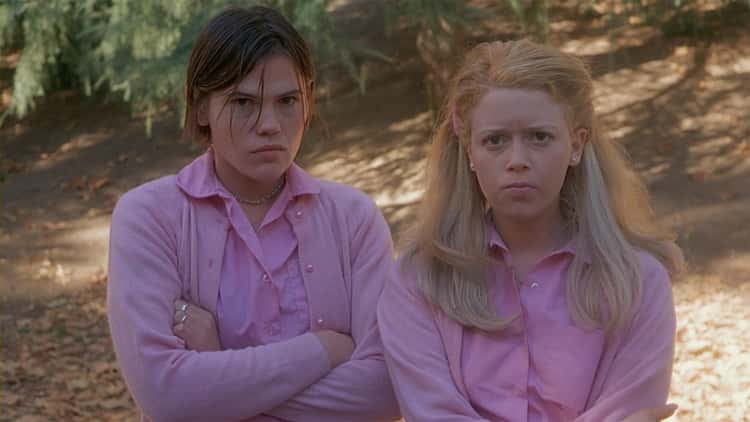
But I’m a Cheerleader now generally enjoys a reputation as a cult classic, but during the course of its 1999 premiere at TIFF and subsequent release, the movie sparked controversy that now seems dated. But I’m a Cheerleader follows, Megan (Natasha Lyonne), who gets unexpectedly sent to a conversion therapy camp before she has even realized that she’s a lesbian. In a satirical twist, Megan learns to understand and accept her sexuality at the camp that is supposed to discourage it, and she develops feelings for her fellow camper Graham (Clea DuVall).
Upon release, the film drew anger for its comedic take on the very real and harmful concept of conversion therapy. Director Jamie Babbit, who based the film on her own experiences self-discovery as a femme lesbian, said, “I got a lot of really mean reviews, mostly from gay people, because they were so pissed off that I had made a comedy about such a f*cked up subject. I just think it was a strange time to be making a movie like that.”
In the years since, But I’m a Cheerleader has had a reappraisal and earned cult classic status for its playful celebration of queer identity and its deconstruction of stereotypes.
